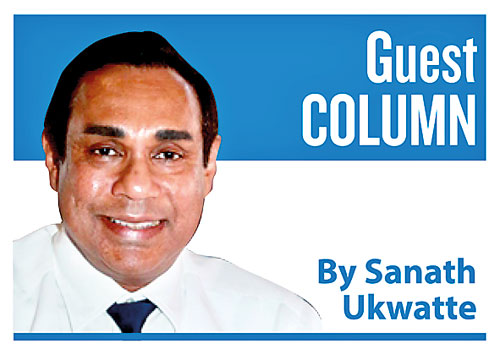Destination marketing – need of the hour
View(s):Sri Lanka is awash with Chinese money. The Port City, Hambantota Port, Mattala Airport and the Lotus Tower are all investments by China. Unfortunately, Chinese tourists’ arrivals are not keeping pace with their investment.
The basic fact is that Sri Lanka lags behind in destination marketing and that is the main reason why the tourism industry is experiencing stagnant occupancy and, in the absence of a proper coordinated global media campaign, we are still attracting low spending tourists.
In addition, the ever-increasing room inventory in Colombo and the growing informal sector have also become a major threat to the hotel industry.
Skills shortage remains a major challenge for the industry in the short and medium terms. This year, The Hotels Association of Sri Lanka (THASL) launched its first ever Rising Star 2017/18 event, a competition designed to recognize talented youth engaged in the industry and to induce fresh blood into the industry. Next year we have plans to launch a campaign to increase women’s participation in the industry which is targeting an additional 150,000 trained employees by the year 2025 to supplement the 350,000 employees who are in employment at present.
In the absence of adequate conference facilities to accommodate large conferences and exhibitions, we hope that the government will continue to support high end luxury goods-retailers and promote international events to attract the growing Indian middle class to the country.
Today, Sri Lanka’s hotel industry is the highest indirect tax paying industry in the region, next to India. Other competing destinations such as Mauritius, Seychelles, Maldives, Thailand, Malaysia, Indonesia and Vietnam pay a maximum of 5 per cent – 10 per cent on top line (indirect taxes) compared to 22.5 per cent in Sri Lanka. If this trend continues, the hotel industry will out-price itself and become further uncompetitive with other regional peers.
Therefore, the country’s promotional plan is critical at this juncture to stimulate demand. This year, the tourism industry started off on a bad footing facing a two-pronged attack – floods and dengue, attracting adverse world headlines.
However, with active promotion by the private sector and the Sri Lanka Tourism Promotion Bureau (SLTPB) in the last quarter of this year, exemplified by the recent hosting of the International Choir Games and the power boat competition, we saw a dramatic increase in publicity for Sri Lanka. All in all, with the hosting of top British travel writers in London and successful road shows in Australia and China, the arrival of new charters and increased frequency by some Gulf carriers and the KLM, we can expect a good winter season this year.
This year’s budget, too, added much needed stimulus to the industry; streamlining of issuance of liquor licenses and operating hours, reducing of excise duties on selected liquor and lowering of import duties on meat products, coupled with 1 per cent tax on commission earned from online travel agents and the subsidised loan system for installation of renewable energy systems for hotels and SMEs will encourage better environmental practices for the hotel industry in general. This year’s budget also made it compulsory for all informal sector accommodation providers to be registered. This is welcome news for the formal sector as this will reduce the leakage of foreign exchange earnings to the country and eventually enhance tax revenue for the government.
With the entry of more and more international brands to complement the local specialised brands, the hotel industry in Sri Lanka is continuously setting the bar high in terms of delivering great expectations to our customers and being able to meet them.
If we can get the global marketing and communications campaign launched by early next year and continue promoting the destination effectively, possibilities of the tourism industry becoming the largest foreign exchange earner and one of the sectors to attract the largest foreign direct investment to the country can be transformed into reality.
The writer is the President of The Hotels Association of Sri Lanka (THASL) and the Chairman/Managing Director at Mt. Lavinia Hotel. He is also the Honorary Consul General to the Republic of Slovenia).


